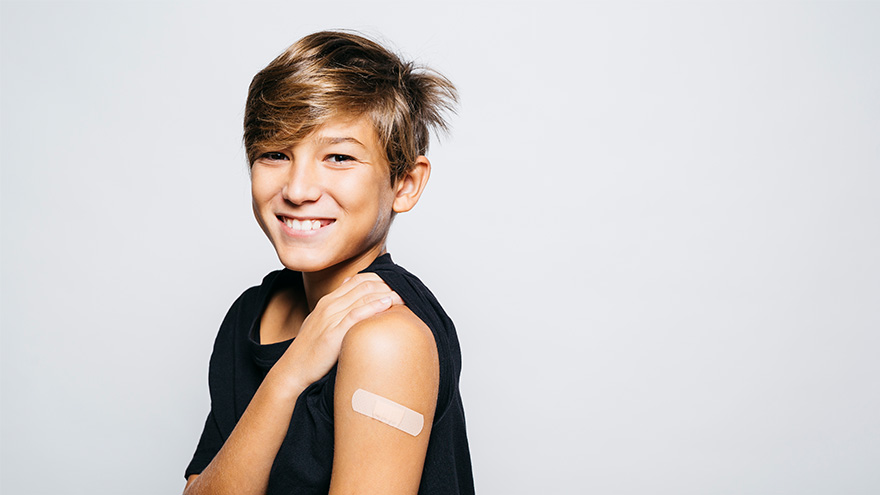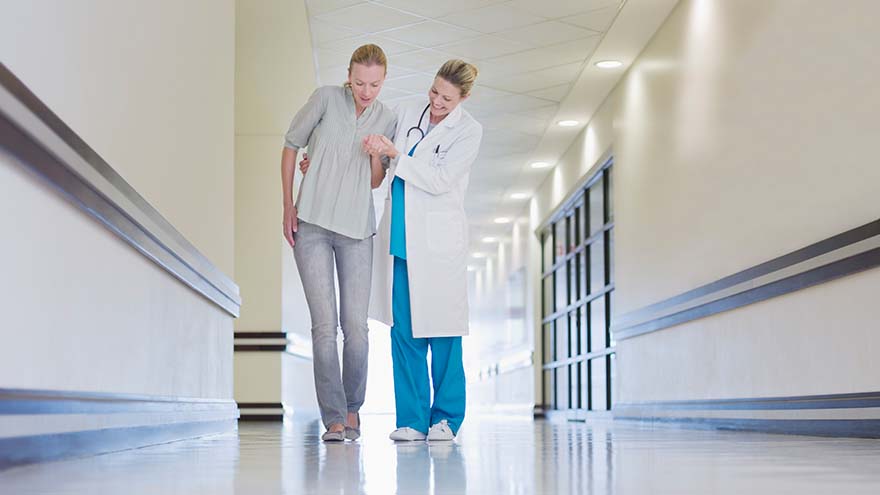Buscar
Results for 'family medicine'
Clear-
Vacuna contra el VPH: la prevención es la mejor medicina
With more than 3 million cases in the United States each year, human papillomavirus (HPV) is a common sexually transmitted disease and can lead to the risk of several cancer diagnoses. Fortunately, a vaccine can prevent more than 90% of HPV cancers when given at the recommended ages. We talked to Renown Pediatrician Vanessa Slots, M.D., to learn more about HPV and the importance of getting your child fully vaccinated. What is HPV? Talking about sexually transmitted infections can be uncomfortable, but learning how HPV is spread is important for prevention. HPVs are spread via skin-to-skin contact. According to the National Cancer Institute, there are low/medium-risk HPVs that can cause warts and cervical dysplasia (abnormal cells on the cervix), and there are high-risk HPVs that can cause various cancers. HPV is perhaps most known for causing cervical cancer. Other cancers related to HPV are anal, vaginal, vulvar, penile and oropharyngeal cancers. In fact, men are four times more likely than women to suffer from HPV-associated oropharyngeal (mouth and throat) cancer. HPV is so common that nearly all sexually active people will be exposed at some point in their lifetime, with around half of infections being a high-risk virus. Benefits of the HPV vaccine Immunizations are safe and effective and have successfully reduced the transmission of many deadly diseases. The CDC (Centers for Disease Control and Prevention) states the HPV vaccine protects against infections that can lead to HPV related cancers and abnormal cells that can lead to cancer (precancers), as well as genital warts. The recommended HPV vaccine schedule The American Cancer Society states that the HPV vaccine is most effective when two doses are given to girls and boys between the ages of 9 to 12. There should be at least 6 months between the first and second dose. “You might be asking why your child needs to get the HPV vaccine at this young age when they are not sexually active,” says Dr. Slots. “Research shows that people have a better immune response to the vaccine when younger than in their late teens and early 20s.” For teens and young adults ages 13 through 26 who have not been vaccinated, getting the HPV vaccine is still highly effective in preventing cancers and genital warts. CDC recommended HPV vaccination suggestions: 2-dose schedule for people who get their first dose before their 15th birthday. 3-dose schedule for people who get their first dose on or after their 15th birthday. “By following the recommended HPV vaccine schedule and getting your child the correct number of doses, this will ensure they have adequate protection against HPV associated diseases including cancer,” says Dr. Slots.
Read More About HPV Vaccine: Prevention Is the Best Medicine
-
When Is It Time to See a Physiatrist
Physiatry (fi-zahy-uh-tree), also referred to as physical medicine and rehabilitation, encompasses the diagnosis, prevention and treatment of disabilities or injuries related to the brain, nerves, bones and muscles. The goal of this specialty is to maximize physical functioning, greatly decrease or eliminate pain, foster independence and improve quality of life for those suffering with a disability, chronic pain and physical impairments. Who Is It for? Physiatry can help patients with functional deficits and secondary medical conditions as a result of the following: Amputation Brain Injury Osteoarthritis Spasticity and Movement Disorders Spinal Cord Injury Spine Pain Sports-Related Injuries Stroke Some of these medical conditions can often cause chronic pain or impede physical functioning, ultimately affecting a person’s overall well-being and making it difficult for them to sustain a desired quality of life.
-
Know Before You Go
Grab your skis, goggles, coat – and don’t forget that helmet. Skiing and snowboarding are fun activities for all ages but come with the risk of injury. Read on for tips to make it a safe day on the mountain. Daydreaming about your next trip to the slopes? We talked to Jared Worchel, DO, about his top tips for gearing up. Get the Gear Before you head out to ski or snowboard, make sure you have all your gear ready and in good condition. Everything should fit correctly so that it keeps you as safe as possible. Wearing proper gear will also help keep you warm. Items to check on before you head out include: Boots Bindings Goggles Poles Helmet Outwear Gloves Pack water and snacks in case the drive takes longer than you except due to weather or traffic. You’ll also want to make sure that your cell phone is fully charged before you head out in case you need to contact friends of staff for help while on the mountain. Helmet, Helmet, Helmet Having a helmet that fits correctly is the most important thing you can do to prepare for a safe day on the mountain. According to a National Ski Areas Association study, helmet use has increased over the last 15 years, with 80 percent of skiers and snowboarders using helmets. Schubert would like to see that number increase to 100 percent. “If you have a head injury it could take you out for the rest of your life,” Dr. Worchel said. “The most important things to think about when fitting a helmet are making sure that it really fits you appropriately. You want to go into a store and try on as many different helmets as they have available. I know it’s tempting to buy one online, but you’re never going to know if it fits correctly.” If you are in an accident, your helmet’s fit can help protect you. Dr. Worchel has some tips on fitting: A helmet should fit low and snug over the head. Make sure that the helmet doesn’t wiggle or feel loose. Look for a model that has adjustability in the back, which will help you make sure it fits snugly. F ind a helmet with a chin strap that will help it stay in place throughout the day.
-
3 datos importantes de atención médica para la generación milenial
Many millennials are fortunate to have good health, but it’s important to be prepared for your next doctor’s visit. Here are three things that millennials should stay on top of for tracking and maintaining their health. For many millennials, doctor visits and preventive healthcare fall by the wayside. Alison Lynch, MD, a family medicine provider with Renown Medical Group says there are a few key things you can do now to set yourself up for a healthy future. 1. Establish with a Primary Care Provider Millennials are more likely to go to urgent care or consult the internet when a healthcare issue arises. While these are helpful tools, here’s a better one: a primary care provider. The benefit of establishing with a primary care provider is that your medical records, history and a baseline for your health will be documented. That means that when a problem or question comes up, your doctor will already have helpful information on file and can help you navigate your needs. Having a primary care provider is often required for prescription refills and referrals to a specialist. By establishing now, you’ll be able to get what you need in the future much faster. Make an Appointment Today 2. Protect Yourself and Your Community There are a few vaccinations and screenings that Dr. Lynch recommends for millennials. Flu Shots: These are available every year and are recommended for protecting not only yourself against the flu but also others you may come into contact with. Flu shots are usually available from August through December through your healthcare provider, pharmacies and pop-up events. Tetanus or Tdap: Most people receive a tetanus shot as a child, but it’s recommended that everyone get a booster every 10 years. If you are overdue, talk to your primary care provider or pharmacist about getting updated. Pap smear: If you’re a woman, a pap smear is recommended every three years in your 20s and every five years in your 30s. HPV vaccine: This vaccine helps prevent the virus that causes cervical cancer as well as the majority of head and neck cancers and warts. The HPV vaccine is recommended for all genders up until age 45. STD screening: Consider an STI/STD screening if you’re sexually active.



